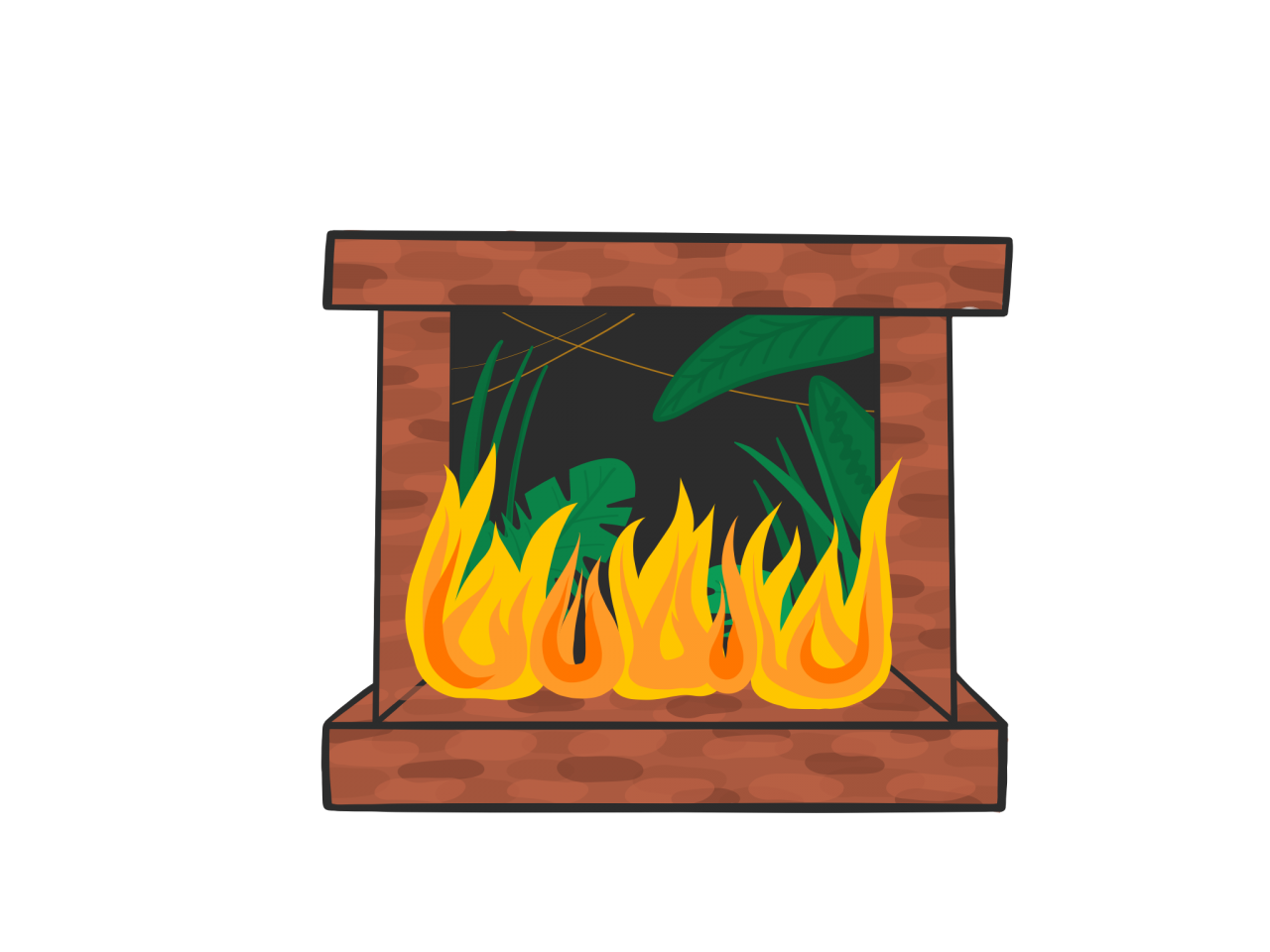Illustration by Genevieve Humphreys
World attention is focused on the devastating fires ravaging the Amazon rainforest. Seventy-six thousand separate fires have started this year, more than 10,000 in the last two weeks. This is almost double the rate of 2018 according to satellite mapping carried out by Brazil’s National Institute for Space Research (INPE).
French president Emmanuel Macron recently tweeted, “Our house is burning. Literally. … It is an international crisis.” He is correct. He might also have mentioned that according to the World Wildlife Foundation, the region harbors ten percent of the world’s biodiversity, a store-house of species that has yet to be cataloged and studied. And that the fires release a massive reservoir of carbon dioxide, exacerbating the greenhouse effect that increases the instability of the global climate.
The causes of the fires are obvious. Most fires in Brazil are set to clear land for cattle ranching and soybean fields. The recently-elected Brazilian president Jair Bolsonaro advocates increased development of the Amazon. He has opened up the heart of the forest to large scale and highly mechanized road-building and land-clearing, and turned a blind eye to invasions of the land of indigenous peoples and conservation areas, allowing logging, mining and farming on some of the earth’s most fragile ecosystems. The effect has been a land rush and trail of destruction of gargantuan proportions.
In addition, climate change is fanning the flames. Warming oceans, greenhouse gases and deforestation are making the Amazonian environment hotter and drier. INPE models suggest that by the year 2050, temperatures in the Amazon will increase by two to three degrees Celsius, with a corresponding decrease in rainfall. More than half of the current fires, and most of the wildfires, are in the dry Cerrado south of the Amazon River. If the process continues, it is expected to transform 30–60 percent of the humid forests into these arid savanna scrub lands.
However, it is misplaced to simply identify Bolsonaro or Brazil as the problem. In my opinion, the causes of the crisis are as global as the effects. Viewing the problem from the United States, we need to realize that the pro-business policies of Bolsonaro and the environmental change in the Amazon are fed by our own insatiable appetite for consumption.
In my thirty years working with forest peoples of Brazil and Paraguay, I’ve seen their communities overwhelmed by cattle ranching and agriculture. Brazil, Argentina and Paraguay now rank with the United States as the world’s largest soybean exporters. The Latin American soybeans are exported to China to raise meat for the growing middle-class. But we play a part in this. Chinese prosperity rests on the production of electronic goods for the American market. Our desire for new phones and computers feeds a global system that promotes Amazonian destruction.
As we all know, climate change is a global phenomenon and U.S. energy use produces far more atmospheric carbon per capita than other nations. In addition, we play an outsized role in the deforestation. Americans insist on searching the world for rare and exotic woods and materials. The American infatuation for Brazilwood, or Ipe (Tabebuia or Handroanthus impetiginosus) for residential construction has stimulated the smuggling of timber from the virgin forests of lowland South America. These logging roads are the harbinger of all the other changes.
The unfortunate truth is we are partly to blame for the fires. This means, however, our actions can contribute to the solution. Conscientious consumption can slow the process of destruction. Just as a butterfly wind bends the wind, delaying the purchase of a new iPhone might save a tree in the Amazon. No one by themselves can solve the problem, but we all can make a difference — and the sum of those actions will make the world a better place.






